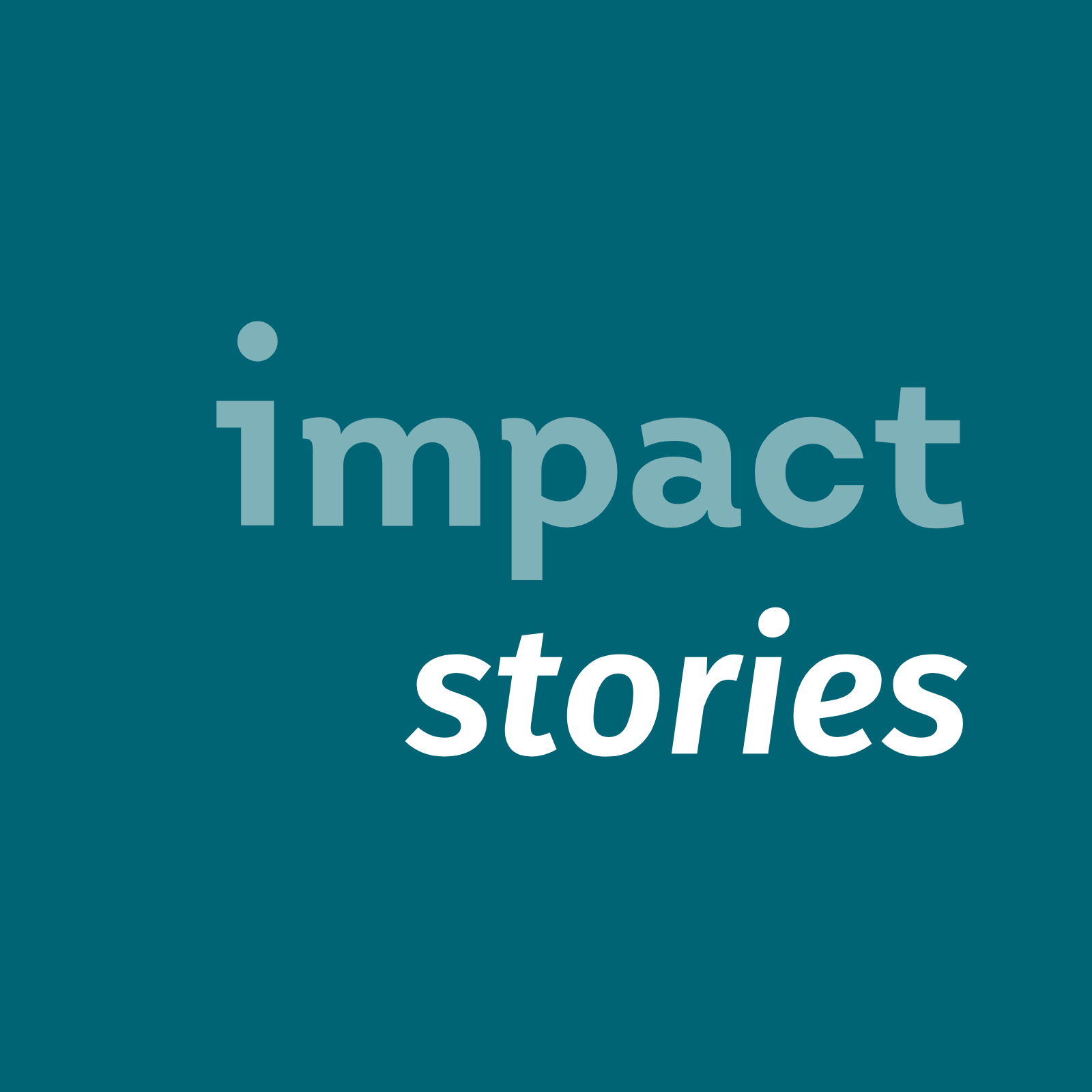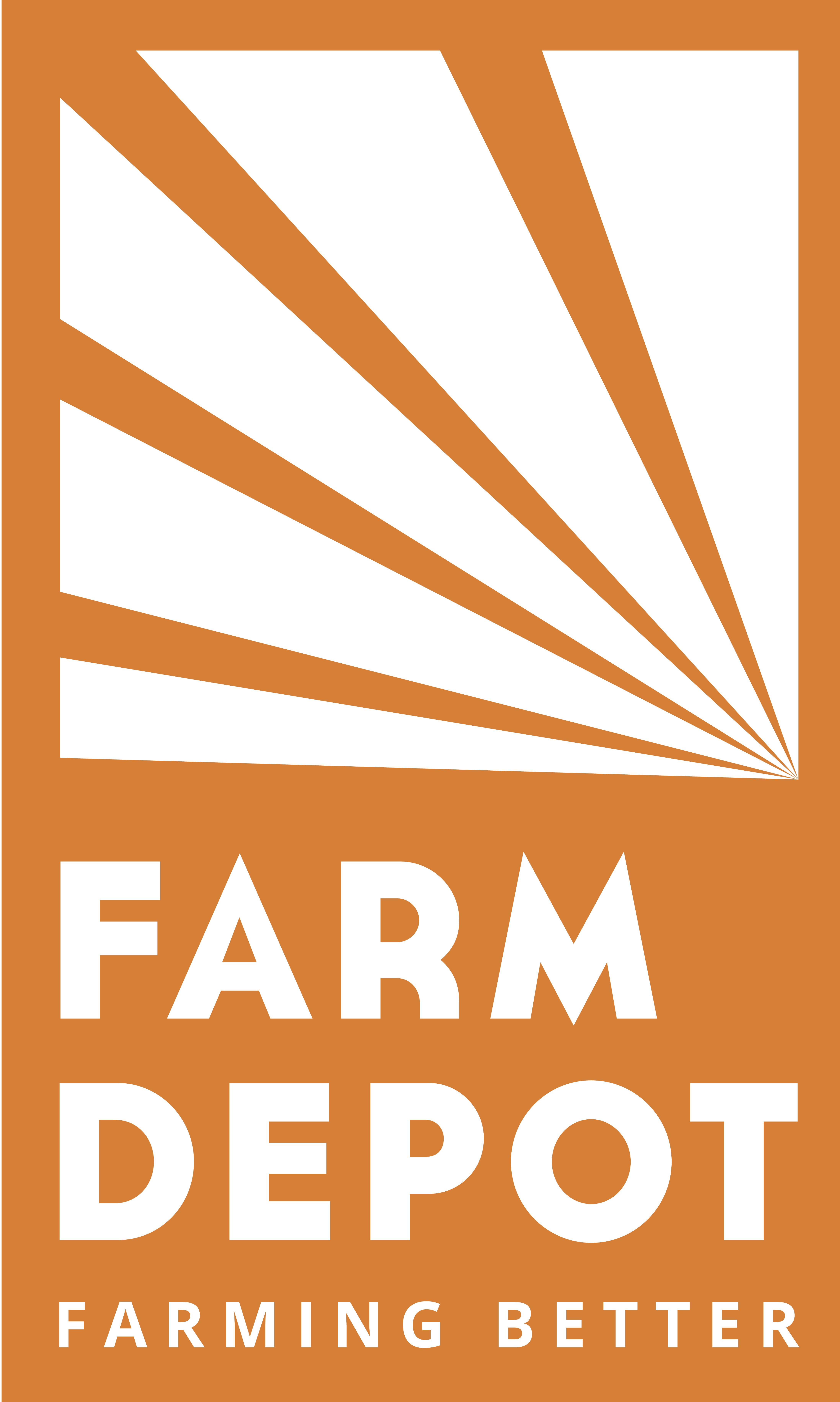

Farm Depot
Farm Depot is an agro retail business registered as a private limited company in Zambia, which has been in operation since 2008. It has built a store network of 23 retail outlets throughout the Copperbelt, North Western and Luapula Provinces, supplying small scale farmers with a range of poultry, animal and cropping inputs.
To start, can you briefly introduce yourselves?
Nina: I am Nina Gibson, Financial Director of Farm Depot, an agro-retail business based in Zambia.
Simon: I am Simon Bentley, the Managing Director. We founded the company together in 2008.
Nina: Now we have 65 permanent employees and 30 to 40 seasonal workers, with expansion plans to grow to 40 retail stores, which would create at least another 25 full time jobs and 20 seasonal jobs.
What motivated you to found Farm Depot?
Nina: We had moved from Zimbabwe to Zambia in 2005 and were looking for opportunities that would make a real difference to small scale farmers. Ross Breeders needed someone to represent their day-old chicks in Copperbelt Province. We took on that role, and then when they put in a feed mill in 2009, we opened shops to sell both the chicks and the feed. We started with a pick-up truck as our office and home… and grew it from there! Coming from farming families in Zimbabwe, Simon and I have a strong empathy with farmers and a real desire to see them succeed. Whilst we didn't think about it at the time, we firmly believe in supporting farmers in their efforts to feed the nation.

Can you explain a bit more about Farm Depot?
Nina: We supply small-scale farmers with a range of poultry, animal and cropping inputs in 23 retail outlets throughout the Copperbelt, North Western and Luapula Provinces.
Simon: We are also introducing a new microfinance product. It will help farmers access credit, as they currently have no collateral to offer to traditional lenders. Our model is based on credit scoring through purchasing history. The intention is to support small-scale farmers to grow their businesses into medium-sized enterprises.
Nina: The loan service also includes the provision of technical advice. This helps farmers increase their productivity and brings the mortality rate down. It is a new service we are developing for chicken farmers, and anyone – not just loan customers – can subscribe to it.
Can you tell us more about the technical support?
Simon: Farmers pay a monthly fee to receive regular in-person visits from the technical advisers. Right now, this costs about K 1,200 (75 USD) over the lifecycle of one batch of chickens. This is about one or two per cent of an average farmer’s income.
Nina: By paying for it, we believe the customer will value it.
Why are you focusing on small-scale farmers?
Nina: Our mission is to support them in their efforts to feed the nation. Also, the primary focus in the Copperbelt is on mining. You do not have many commercial farmers there. Instead, mine workers or their wives do backyard farming to gain an extra income, especially when it comes to chicken.

What is the special value you create for small-scale farmers?
Nina: Our business model offers them the best products and the knowledge they need to be profitable.
How much can they increase their income?
Simon: Poultry farmers, for example, can increase their annual earnings by fifty per cent. With the correct inputs and management, they can complete the growing cycle in eight weeks. This enables them to grow 6.5 cycles a year, as opposed to the three or four cycles they do on average right now.
Nina: Mrs. Bwalya, for instance, was one of our first loan customers. She borrowed to finance a loan bundle for 300 chickens, and within six weeks made a ten per cent profit of K1,800. Many customers buy with us regularly, and we see how much their business is growing over the years.
If your company did not exist, what would be the next best options for smallholder farmers?
Nina: There are many other agro-dealers, but they are often run by single entrepreneurs and lack working capital. This affects their ability to have a consistent supply of good quality products. Also, Farm Depot is the only company offering microfinance based on spending history at this time. Our technical services support is also not available from our competitors in the agro-dealer market space. Traditionally, only the suppliers provide ad hoc product support. This advice may be biased and is rarely systematized.
How do you impact women in particular?
Nina: About 60 per cent of our customers are female. Especially in poultry, most customers are women who raise chickens to support their children’s education. We help them increase their incomes and gain an equal financial standing in the household. In the future, I would love to develop a microloan product targeted especially to women. As businesses grow we also expect that new employment will be created.
What other impact does Farm Depot create?
Nina: Poultry is the cheapest source of protein that is available. Our business model helps make it more affordable for people with a low income, which improves their health and wellbeing.
Simon: Our technical advice also helps chicken farmers produce in a more responsible way. For example, a lack of hygiene protocols often leads to an overuse of antibiotics. Other practices, like using charcoal to heat young chicks, are harmful to the environment. We plan to promote solar solutions.
How many people have you reached so far?
Nina: We currently have an active customer database of over 40,000 small scale farmers in both peri-urban and rural areas, and we started from zero! Over 14 years, we have managed sustainable growth based on our financial and managerial capabilities.
How do you measure the impact you create?
Simon: Currently, we only collect data from farmers’ purchasing history with us. As we are scaling the microloan programme, we are developing software that will allow the technical services to record what they observe and implement on the site. This will allow us to develop profiles of every person. We will use this data to collateralise the loans.

What makes your business model commercially viable?
Nina: Because we have been in existence since 2008, we have well-developed supply lines. Also, our 23 outlets give us some buying power. We only represent the best brands, so we have gained a reputation with farmers and suppliers. We have continued to grow, improve our offering, and invest in our brand image.
Can you tell me the annual revenue of your business?
Nina: An average performing store has a turnover of US$30,000 per month with a gross profit ratio of 12 per cent and a net profit ratio of two per cent. Our annual revenue ranges between US$ 10-15 million.
Do you receive any funding or technical support from outside the company?
Simon: We were awarded the Enterprise Zambia Challenge Fund, a matching grant worth $235,000.

What are your plans for the next few years?
Simon: We aim to reach 80,000 customers by March 2024 in terms of retail stores. With microfinance and technical services, we aim to reach 10,000 farmers. We continually look to expand our retail network and diversify our product and services.
What can you point to in your track record that demonstrates the potential for profitable growth?
Nina: We have survived for this many years and continue to grow. Farm Depot is post revenue and has had annual revenue growth of 28 per cent year on year in Kwacha terms for the past six years. We are facing potential supply problems, so we need to identify suppliers who are going to grow with us. But we have good strategies and are up-front with these challenges.
What would you need in order to scale?
Nina: At the moment, we are looking for working capital to support our growth, and also for technical assistance to train the trainers. This then allows them to impart more and better knowledge to the farmers.
Simon: A lot hinges on the information that is passed from the extension services to the farmers. A consistent supply of Day Old Chicks across Zambia is essential to enable small scale farmer business growth in this market. At present we do not have a transparent system of allocation from suppliers. So this is the biggest area to focus on.

What challenges does your company face?
Nina: Ensuring that your company is representing your values is an ongoing challenge. We want to represent honesty, integrity, and deliver a great service to our customers. But it is not always delivered in that way. We have so many outlets that are not directly under our control day to day. So, we focus a lot on our internal communications.
Simon: This is right. The communication and marketing to the customers is the easy part. It is the training that is required in order for our own staff to truly understand the products, demonstrate any sort of authority, and overcome any objections, where most of our effort now goes. Also, most of our employees come from a relatively low education base.
Nina: Working capital is a challenge as well. Unless you have a 150 per cent collateral, banks simply will not lend to you in Zambia. This makes it very difficult to grow a business. We have relied a lot on our suppliers, which has put us in a precarious situation sometimes.
What inspires you to carry on?
Nina: We have the grit and determination to make it succeed. We want to continue supporting our farmers and offering them better products and services.
Are there any recommendations you can give to other inclusive business companies?
Nina: You need to have nerves of steel. There are times when you are up and times when you are down, but somehow you have to persist. No matter how many financial models you come up with, there are bound to be unexpected wins and losses. But be as prepared as you can be. The tendency is always to look for the positives when planning – pay special attention to the negatives, too, so that mentally you can prepare yourself. Like with life, too, you have to be prepared for loss, and not be afraid to try anyway.
Simon: Develop your staff. Spend more money on development and creating a culture within your organisation. I think a lot of issues are resolved with the right culture and treating your staff well with respect.
Nina: Spend more than you can afford on your accounting systems. This is something that people starting up tend to compromise on. But in the long term, it binds you if you do not have solid financial records. It impacts your ability to scale when you start dealing with institutions that are looking for evidence of what you are saying. We put a lot of energy and time into finding the right packages.

The Impact Stories are produced by the Inclusive Business Action Network (iBAN). They are created in close collaboration with the highlighted entrepreneurs and teams. The production of this Impact Story has been led by Susann Tischendorf (concept), Rachel Elliott (video), Katharina Münster (text and info graphics), Christopher Malapitan (illustrations), and Alexandra Harris (editing). The music is royalty free. The photographs are courtesy of Farm Depot.
Updated: 11/2022.